Peking University, Oct. 22, 2011: The last 2011 GEDC Conference plenary speech session was held at Peking University on the morning of October 22nd. Speakers from institutions and industry delivered speeches from varying perspectives on the role of engineering education in the globalizing world.
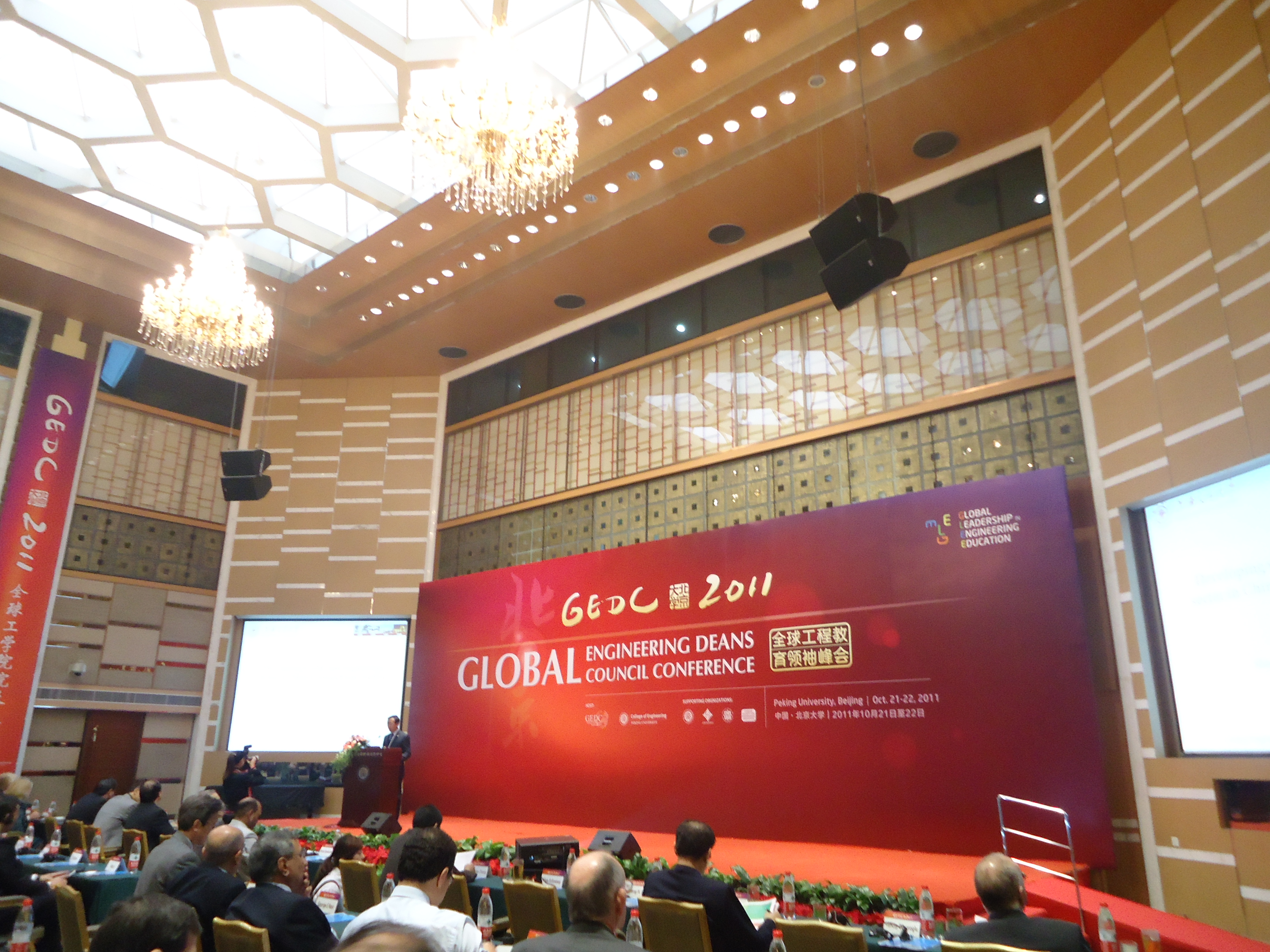
The four speakers, Shanghai Jiaotong University President Jie Zhang, Schneider Electric Power Business Executive Vice-President Eric Rondolat, University of Southern California Viterbi School of Engineering Dean Yannis C. Yortsos and National University of Singapore Research Strategy Vice President Seeram Ramakrishna shared a common concern. They regard the connection between university and the industry as essential, therefore technological development and innovative power of engineering schools should be efficiently channeled into economic and social development.
Sarah Rajala served as moderator for this session. She began by expressing her hope to engage all participants in the exchange of ideas in this session and wished all to enjoy their academic interaction. She then introduced and welcomed the first speaker Jie Zhang on podium.
Jie Zhang’s speech focused on the engineering education in China’s context. He started by addressing the importance of engineering education: “Scientist seeks to understand what is; Engineer seeks create what never was.” According to him, although China has achieved a rapid economic growth since 1980s, its economy mainly depends on cheap labor and high resources consumption. China is currently in the transitional period between factor-driven stage and efficiency-driven stage. In this special period, it is a strategic option to build an innovation-oriented industry, which poses challenges to Chinese engineering education. Therefore, Chinese universities should shoulder the responsibility to develop diversified modes of industry-university research cooperation, with “market” as the bridge between innovation and profit.
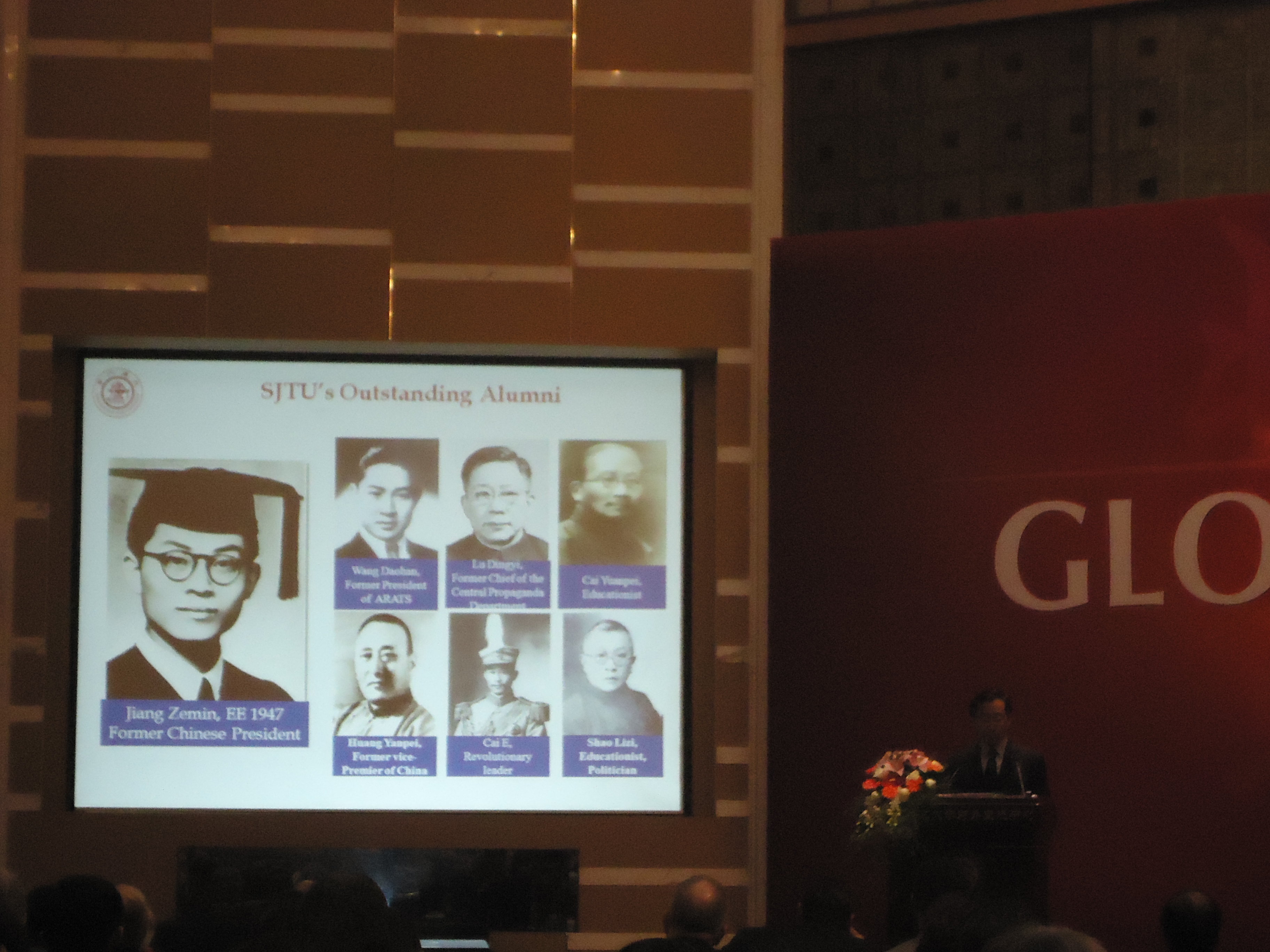
Following Jie Zhang’s academic perspective, the second speaker Eric Rondolat continued the theme from a corporative vision. He firstly presented to the audience an energy dilemma at present time, which calls for cleaner energy and higher energy consumption efficiency. And then he emphasized the importance to incorporate students into the R&D stage of industry, since they are part of the generation to find resolution to our energy dilemma. With specific programs of Schneider Electronic, Eric Rondolat demonstrated that the cooperation between university and corporations is a win-win type of relationship. Therefore, as cradle of innovative technology, engineering schools play an irreplaceable role.
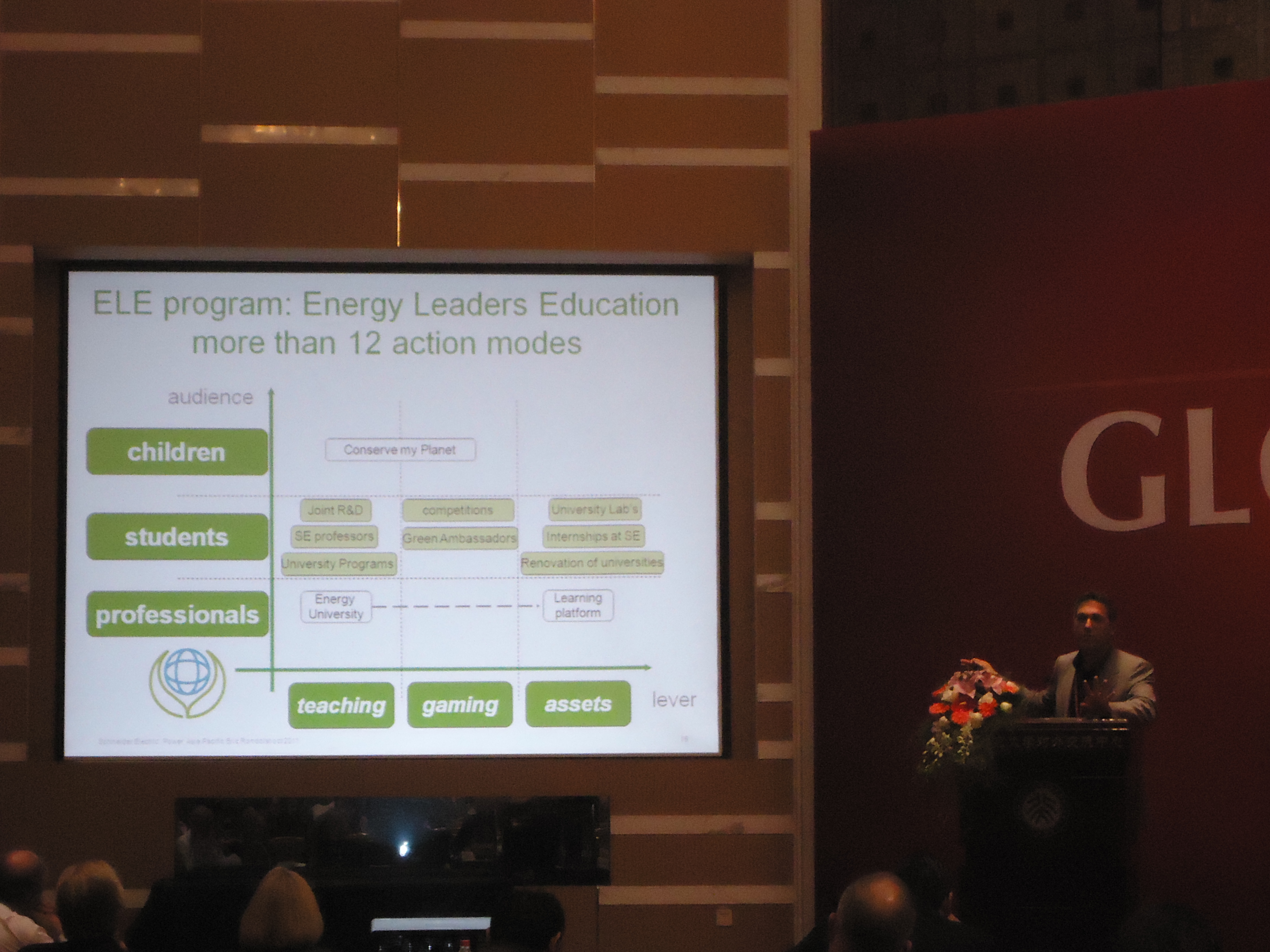
Then after a short break, the focus of the session shifted to another important issue: engineering education in a hyper-connected world.
The third speaker Yannis C. Yortsos delivered a quite substantial speech on the role of engineering schools in such a context. Accorsing to him, global challenges require global collaboration, also in academic world. To enhance academic experiences in a globalized world, Yannis introduced “i-Podia” system, a collaborative online sharing system between USC (University of Southern California), PKU and NTU (National Taiwan University), where students from these three universities could have access to the same classroom. Besides, Yannis commented that new global economy will lead to elimination of routine jobs and appearance of creative jobs based on innovation and entrepreneurship. The Role of engineering schools is to provide for this process continuous innovation to handle global challenges.
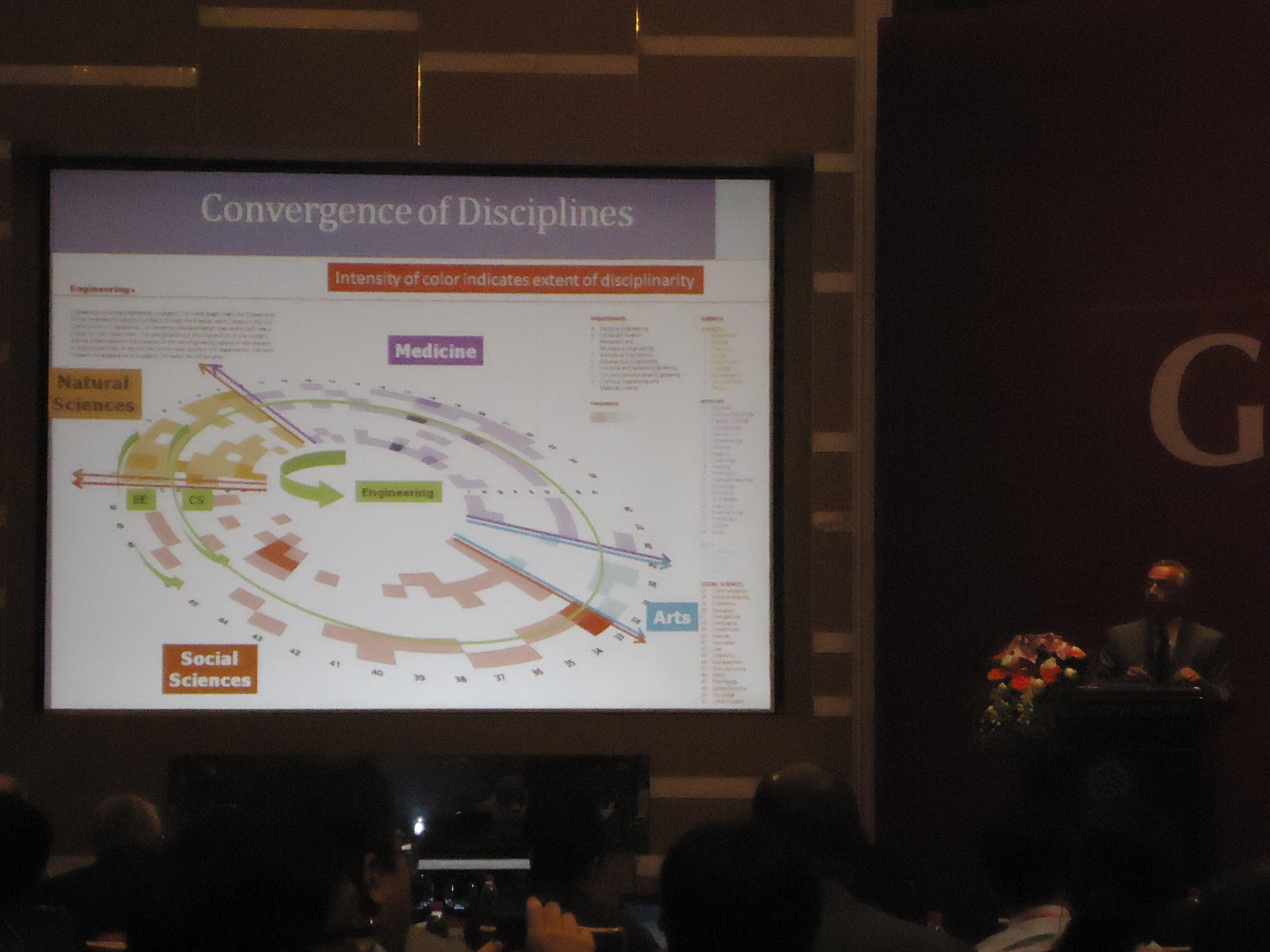
At last Seeram Ramakrishna delivered his speech on the role of GEDC in hyper-connected, independent, competitive world. He brought the audience back to where GEDC began and recalled its progresses over the years. He looked back on GEDC’s initiative, support from world’s political leaders as well as its vision and mission. With both pride and vision for future improvement, he concluded by stating that engineering school leaders still face great challenges, such as environmental problems and sustainable development, and GEDC still has a long way ahead.
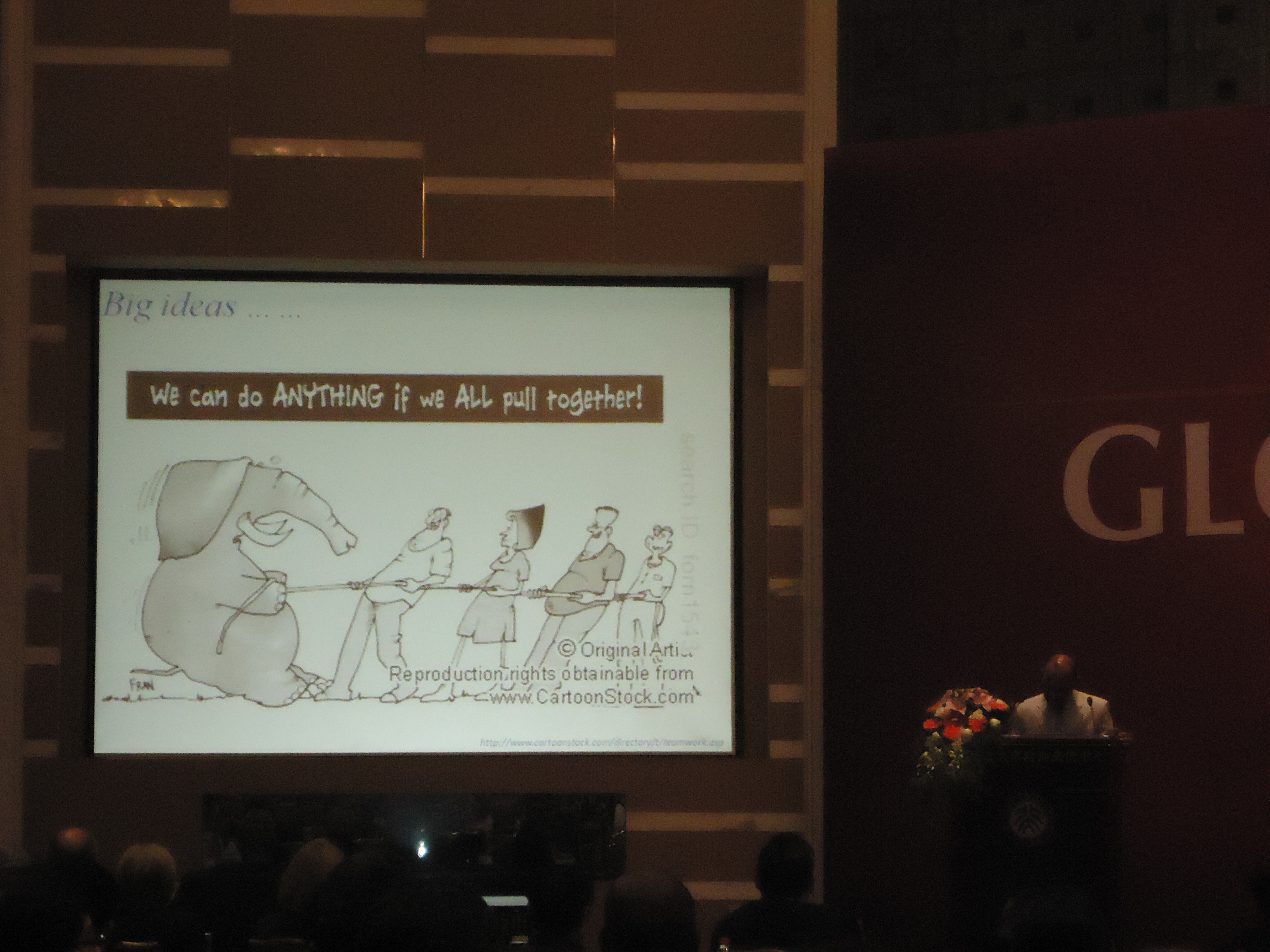
Sarah Rajala concluded the morning plenary speech session as a forward view towards future. From engineering education in China’s context to a reflection on the institution itself, the speeches have offered valuable suggestions to build a better future.
Additional Information on the Speakers:
Jie Zhang, President, Shanghai Jiaotong University
Jie Zhang took office as the 39th president of Shanghai Jiao Tong University on November 27, 2006. He is a physicist in x-ray lasers, high field and laser-plasma physics, and he was elected Academician of Chinese Academy of Sciences (CAS) in 2003, Member of German Academy of Sciences Leopoldina in 2007, Fellow of Third World Academy of Sciences (TWAS) in 2008, and International Fellow of the Royal Academy of Engineering in 2011. He was elected as an Alternative Member of the Central Committee of Chinese Communist Party in 2007.
Eric Rondolat, Executive Vice-President, Power Business, Schneider Electric Asia-Pacific
Eric Rondolat’s career has mainly had an international focus. He has completed a Master in International Marketing and is a graduate from ENSEEG .He was nominated Country Manager of Schneider Electric Argentina, Uruguay and Paraguay until 2003. He moved back to France in 2004 to become Senior Vice President in the Customers and Markets Division, responsible for the strategic marketing of panel builders, contractors, electric utilities and building, energy and infrastructure markets. So far, he was Executive Vice President, Power Business.
Yannis C. Yortsos, Dean of the Viterbi School of Engineering at the University of Southern California
Yannis C. Yortsos is Dean of the Viterbi School of Engineering at the University of Southern California, the Chester F. Dolley Professor of Chemical and Petroleum Engineering, and holder of the Zohrab A. Kaprielian Dean’s Chair in Engineering. He was appointed dean in 2005. Yortsos had served as senior associate dean for academic affairs at the Viterbi School from 2001 to 2005. He was chairman of the USC Department of Chemical Engineering from 1991 to 1997. Yortsos received his B.Sc. degree from the National Technical University, Athens, Greece, in 1973, and M.Sc. and Ph.D. degrees from the California Institute of Technology in 1974 and 1979 respectively, all in chemical engineering. Yortsos is a member of the U.S. National Academy of Engineering, a Foreign Member of the Russian Academy of Natural Sciences and the recipient of a number of awards, including most recently Honorary Member of the Society of Petroleum Engineers (SPE) (2011) and Honorary Mem?ber of the AIME (2011). He was the SPE Editor-in-Chief for all technical journals of the SPE for the pe?riod 2006-2010. He currently serves on the Executive Committee of the Engineering Deans Council as well as on the Executive Committee of the Global Engineering Deans Council. His research interests are in the flow, transport and reaction processes in porous media and constricted flow geometries.
Seeram Ramakrishna, Vice President, Research Strategy, National University of Singapore
Seeram Ramakrishna, FREng, FNAE, FAAAS is the author of book ‘The Changing Face of Innova?tion’. He is an advisor and sought after speaker worldwide on global trends of higher education, scientific research, and innovation. He participates in round table discussions organized by various think tanks, World Bank, OECD, and ASEAN. He is trained as a materials engineer at the University of Cambridge, and received general management training from the Harvard University. Thomson Re?uters ISI Web of Knowledge places him among the top one percent of materials scientists worldwide (ESI rank is 30). He is an elected international fellow of major engineering societies in Singapore, ASEAN, India, UK and USA. He is a professor at the National University of Singapore and held several senior leadership positions which include Dean of Engineering, Vice-President of research strategy, Vice-President of International Federation of Engineering Education Societies, and Founding Chair of Global Engineering Deans Council. His passion led to substantial academic partnerships with institutions such as MIT, UC Berkeley, University of Cambridge, Imperial College, French Grand Ecoles, TUM, ETH, Technion, Peking University, and IITs in healthcare, energy, water and sustainability.
Reported by: Yan Binghan
Edited by: Li Xiaomeng